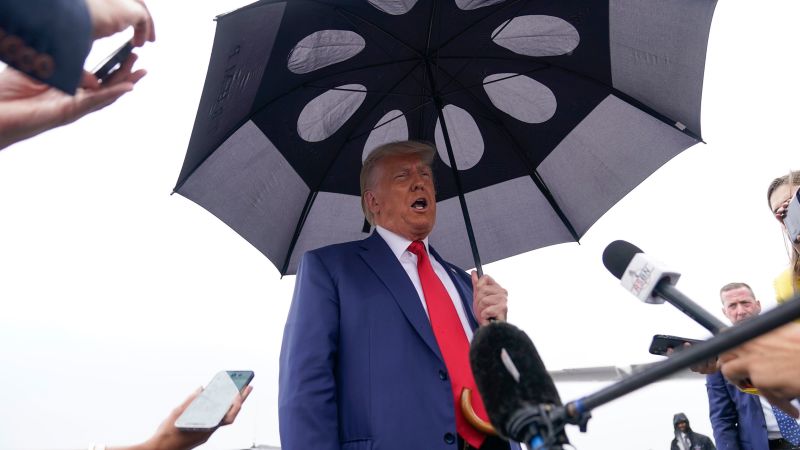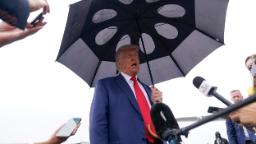CNN
—
Former President Donald Trump’s legal team has proposed narrower rules than those sought by prosecutors over what he can do with evidence he is provided in the criminal election interference case.
In a new court filing on Monday, Trump’s lawyers leaned heavily into claims that special counsel prosecutors are on a politically motivated campaign to restrict his First Amendment rights.
“In a trial about First Amendment rights, the government seeks to restrict First Amendment rights,” the attorneys said in the court filing. “Worse, it does so against its administration’s primary political opponent, during an election season in which the administration, prominent party members, and media allies have campaigned on the indictment and proliferated its false allegations.”
Prosecutors have proposed a more restrictive protective order over evidence in the case, pointing to Trump’s public statements that they say could have a “harmful chilling effect on witnesses or adversely affect the fair administration of justice in this case.”
The latest filing shows that prosecutors and Trump’s lawyers are in disagreement over the most granular details of the so-called protective order, a type of order that can usually be issued in a case without much drama.
The Justice Department previously hasn’t asked for any special protections over records Trump’s team already has that may relate to the case, or information that’s already publicly available.
Smith’s and Trump’s teams have also fought bitterly in court filings over the schedule for resolving the dispute over the rules.
Trump’s new submission to US District Judge Tanya Chutkan – who rejected his weekend bid to push back the deadline for his response to the prosecutors’ proposal – pointed to comments from President Joe Biden and even a meme posted on his Twitter account that Trump’s lawyers claim show how Biden has “capitalized on the indictment.”
Trump’s lawyers acknowledged in the filing that there was a need to keep private certain classes of evidence handed over to him in the case, suggesting that – despite the tone of their submission – their position was not actually that far apart from what prosecutors recommended.
“However, the need to protect that information does not require a blanket gag order over all documents produced by the government,” the Trump filing said. “Rather, the Court can, and should, limit its protective order to genuinely sensitive materials – a less restrictive alternative that would satisfy any government interest in confidentiality while preserving the First Amendment rights of President Trump and the public.”
Among the changes to the Smith team proposal that Trump is asking for is a narrowing of what would be considered “sensitive” discovery materials in the case – a subset of documents for which prosecutors are seeking stricter disclosure rules. The former president also wants to expand who can access certain evidentiary materials, so to include people not being employed to work on Trump’s case, such as volunteers.
Trump’s lawyers also recommended changes to procedures for establishing how non-public evidence will be dealt with during pre-trial proceedings, as well as in trial.
Prosecutors in a criminal case can seek a protective order from a court to prevent defendants from speaking publicly about sensitive and confidential information produced during discovery in the case.
The government usually asks for such orders to ensure other individuals involved in a case – like witnesses – won’t be potentially subjected to undue pressure by defendants in a case. Such orders also often hew to federal rules that limit what can be made public from a grand jury proceeding and under what circumstances that information can be disclosed. Requests for the orders are routine, and judges typically issue them in both criminal and civil cases.
Unlike protective orders, which tend to be narrow in scope, a gag order prevents a defendant from talking publicly about a pending case. These orders are seen more often in high-profile cases but are still less common than protective orders due to the constitutional concerns surrounding them.
This story has been updated with additional details.


